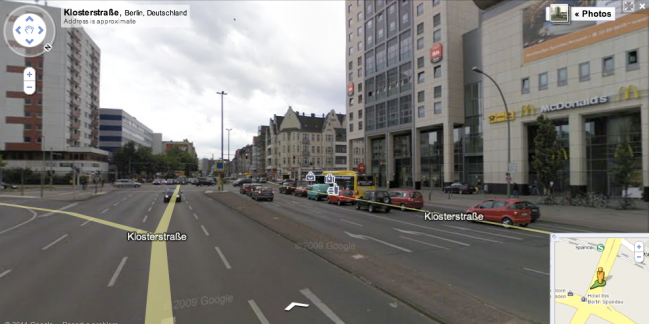 Google has pulled the plug on Street View in Germany in spite of a recent court victory that declared the photo mapping project to be within the laws of the country. That means there won’t be any new 360-degree photos added to Google’s maps of Germany. However, the 20 German cities that have already been photographed will remain online and accessible.
Google has pulled the plug on Street View in Germany in spite of a recent court victory that declared the photo mapping project to be within the laws of the country. That means there won’t be any new 360-degree photos added to Google’s maps of Germany. However, the 20 German cities that have already been photographed will remain online and accessible.
A Google spokesman told Search Engine Land that the company has shifted its priorities for Street View.
“Our business priority is to use our Google cars to collect data such as street names and road signs to improve our basic maps for our users in a similar way that other mapping companies do.”
In March, a German court ruled that it was legal for Google to photograph private property from streets. Even with the court’s approval, the Internet giant has decided to shutter the project. One possible reason is that Street View has proven to be particularly unpopular with the German public. Last October, Google announced that nearly 250,000 German households had opted-out of Street View. Those residences subsequently were blurred out of Street View photos.
Google has also received criticism after it was revealed that the vehicles that it uses to photograph locations had hoovered up personal information from Wi-Fi networks around the world. In March, France announced that it had fined Google $142,000 for the Wi-Fi data collections. Google has said that the information was gathered by accident and has issued apologies to a number of countries.
Google has so far declined to say what brought about the change of heart in Germany. But given the legal struggles the company has endured compounded with Street Views’ relative unpopularity in Germany, it seems likely that Google just decided that the photo project just wasn’t worth the continued effort.


